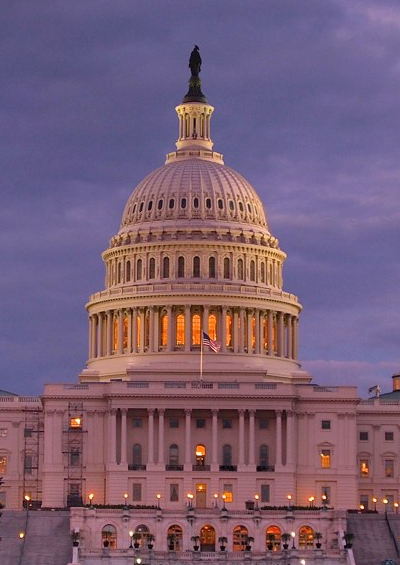AOC and Francis Fukuyama: Reflections on Social Democracy and the US
The constant bipartisan talk of the “American Dream “ is entirely geared to preserving the material advantages of the country’s rich at the expense of its workers.
March 24, 2019
From the vantage point of U.S. elites, the true political “genius” of the United States is found in the amazing bipartisan consensus among the party establishments of the Democrats and the Republicans. Both have been united in feeding the delusion that has always handicapped the U.S. working class.
The most concrete – and cynical – expression of this mindset – and one that was entirely geared to preserving the material advantages of the country’s rich — was the constant bipartisan talk of the “American Dream.”
For the most part, both political parties offer up that refrain as an entirely rhetorical device to mimic the existence of a social welfare state. Notably, it isn’t just Republicans who have been using that language. Both Clintons, as presidential candidates, were always keen to talk up the American worker in that manner.
U.S. as a civilizational latecomer
Thus, what likely lies ahead is that, about a century after the last progressive movement had some political power in the United States, the U.S. may reveal itself as a civilizational latecomer to the idea of social democracy.
With the benefit of hindsight, one can register the fact that Americans – to this day – do not have a legal claim to the most basic tenets of social security. These include paid vacation, affordable health care, maternity leave, the right of organization in the workplace etc.
Not without reason, Europeans consider living without such benefits, social rights and protections as the Neanderthal age. In the United States, though, such benefits are still to be realized. Which is why it is correct to label what is on offer so far in the United States for the working class a “raw deal.”
Hence the promise of a rosy age for social democracy in America (even though the movement has largely outlived its usefulness in Europe, since it basically represents a society-wide consensus there).
American elites have always argued that “workers” in their country (in the 21st century, read as people below the median income level) just need to hold their individual and collective heads down to participate economically, thanks to the genius of the American economy, in the “rising tide.”
From the American Dream to the American Question
That has proven not to be the case. So far, the United States’ bipartisan elites have gotten away with claiming that the United States is the “richest nation on earth” – without enough Americans then asking why none of that glorious wealth ever arrives in their pockets.
The generally very shrewd political activism of AOC, paired with the more studied approach of Elizabeth Warren, may yet lead to a United States that can no longer escape this question.
And indeed, instead of the rest of the world buying into the U.S. elite narrative so diligently pushed on all of us, we should stop referring to the American Dream – and instead talk about the pressing need to answer the “American Question.”
That question is: How much longer will U.S. bipartisan elites get away with their connivance in NOT credibly addressing the absence of even baseline forms of economic rights and socio-economic fairness in the United States?
U.S. less developed politically than India
In that regard, the masses of illiterate Indian voters offer Americans a powerful example. They do not lack the political intelligence to “fire” politicians at the ballot box when they believe that their leaders have not delivered on the “trickle down” of economic growth that they had promised.
Scores of Gandhis have experienced that smartness of Indian voters. Mr. Modi, the current prime minister, may turn out to be the latest victim of Indians’ collective sense of political realism.
In that sense, contemporary India – even though it ranks only in 130th place in terms of the level of human development globally (compared to 13th place for the United States) can be considered more advanced in terms of its political civilization.
Conclusion
Such American short-sightedness cannot last forever. That is why one is inclined to feel positive toward the political venture pushed forward by AOC and a new generation of razor-sharp, young members of the U.S. Congress from a broad variety of ethnic backgrounds.
Their presence on the national – and eventually global – stage is a powerful testament to the quality and dynamism of U.S. politics that will be felt more and more, as the United States moves to a “majority minority” society.
P.S.
Then again, the American working class may continue in its delusions – and fall yet again for the empty-handed rhetoric of Donald Trump.
Takeaways
The US may reveal itself as a civilizational latecomer to the idea of social democracy.
The constant bipartisan talk of the “American Dream“ is entirely geared to preserving the material advantages of the country’s rich at the expense of its workers.
We should stop referring to the American Dream – and instead talk about the pressing need to answer the “American Question.”

